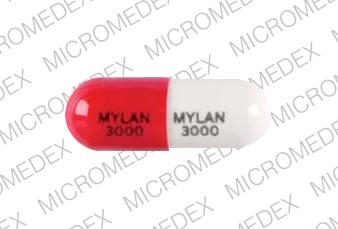Meclofenamate Interactions
There are 385 drugs known to interact with meclofenamate, along with 10 disease interactions, and 2 alcohol/food interactions. Of the total drug interactions, 99 are major, 278 are moderate, and 8 are minor.
- View all 385 medications that may interact with meclofenamate
- View meclofenamate alcohol/food interactions (2)
- View meclofenamate disease interactions (10)
Most frequently checked interactions
View interaction reports for meclofenamate and the medicines listed below.
- Acetylsalicylic Acid (aspirin)
- Adderall (amphetamine / dextroamphetamine)
- Advair Diskus (fluticasone / salmeterol)
- Aimovig (erenumab)
- Allegra (fexofenadine)
- Ambien (zolpidem)
- Aspirin Low Strength (aspirin)
- Augmentin (amoxicillin / clavulanate)
- Benadryl (diphenhydramine)
- Celexa (citalopram)
- Coreg (carvedilol)
- Crestor (rosuvastatin)
- Flomax (tamsulosin)
- Imitrex (sumatriptan)
- Klonopin (clonazepam)
- Lipitor (atorvastatin)
- Nasonex (mometasone nasal)
- Norco (acetaminophen / hydrocodone)
- Percocet 5 / 325 (acetaminophen / oxycodone)
- Prenatal Plus (multivitamin, prenatal)
- Prilosec (omeprazole)
- Pristiq (desvenlafaxine)
- Spiriva (tiotropium)
- Symbicort (budesonide / formoterol)
- Valium (diazepam)
- Vitamin B12 (cyanocobalamin)
- Vitamin D2 (ergocalciferol)
- Vitamin D3 (cholecalciferol)
- Xanax (alprazolam)
- Zyrtec (cetirizine)
Meclofenamate alcohol/food interactions
There are 2 alcohol/food interactions with meclofenamate.
Meclofenamate disease interactions
There are 10 disease interactions with meclofenamate which include:
- asthma
- fluid retention
- GI toxicity
- rash
- renal toxicities
- thrombosis
- anemia
- hepatotoxicity
- hyperkalemia
- platelet aggregation inhibition
More about meclofenamate
- meclofenamate consumer information
- Compare alternatives
- Pricing & coupons
- Reviews (2)
- Drug images
- Latest FDA alerts (1)
- Side effects
- Dosage information
- During pregnancy
- Drug class: Nonsteroidal anti-inflammatory drugs
- Breastfeeding
- En español
Related treatment guides
Drug Interaction Classification
| Highly clinically significant. Avoid combinations; the risk of the interaction outweighs the benefit. | |
| Moderately clinically significant. Usually avoid combinations; use it only under special circumstances. | |
| Minimally clinically significant. Minimize risk; assess risk and consider an alternative drug, take steps to circumvent the interaction risk and/or institute a monitoring plan. | |
| No interaction information available. |
See also:
Further information
Always consult your healthcare provider to ensure the information displayed on this page applies to your personal circumstances.


